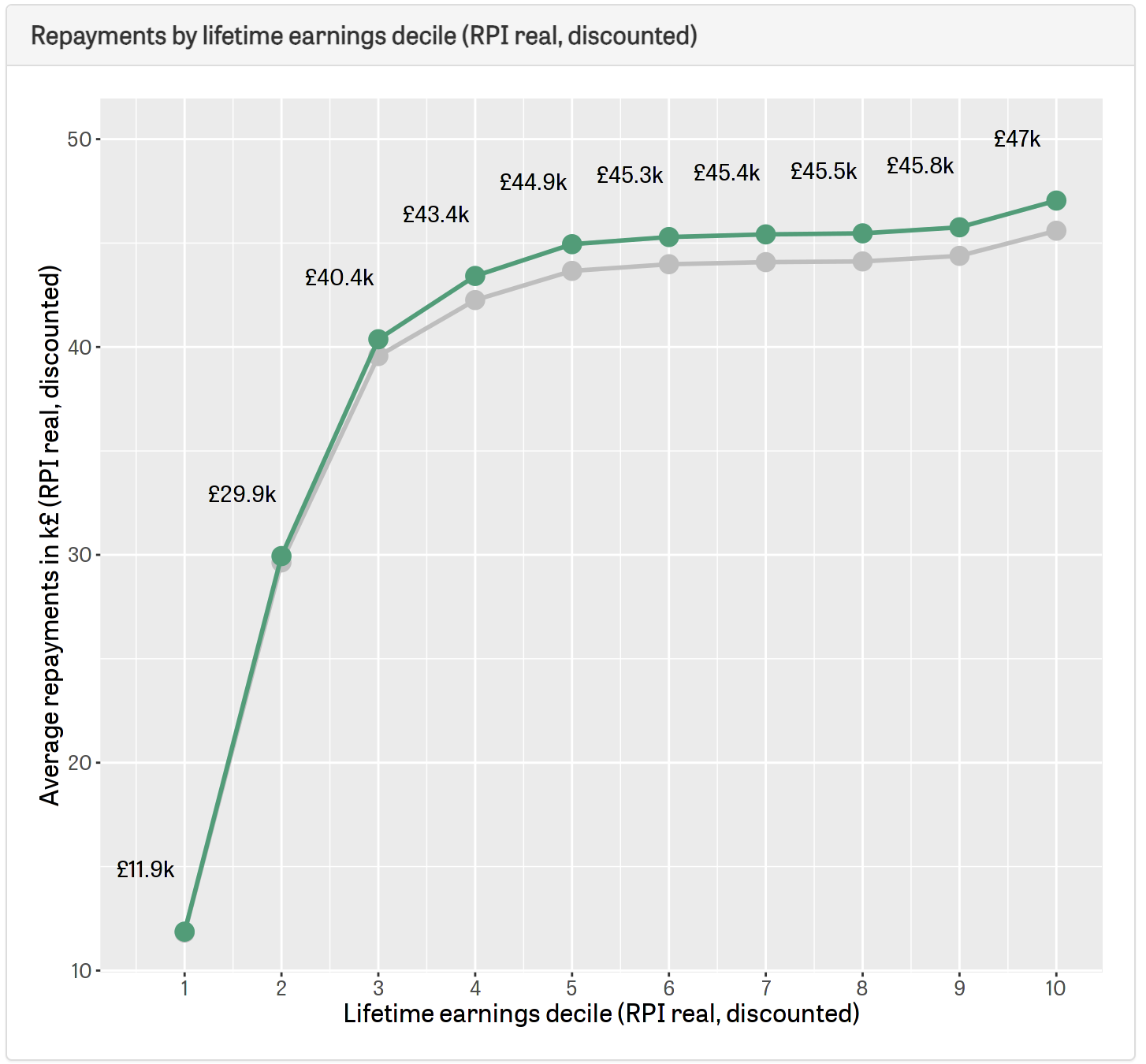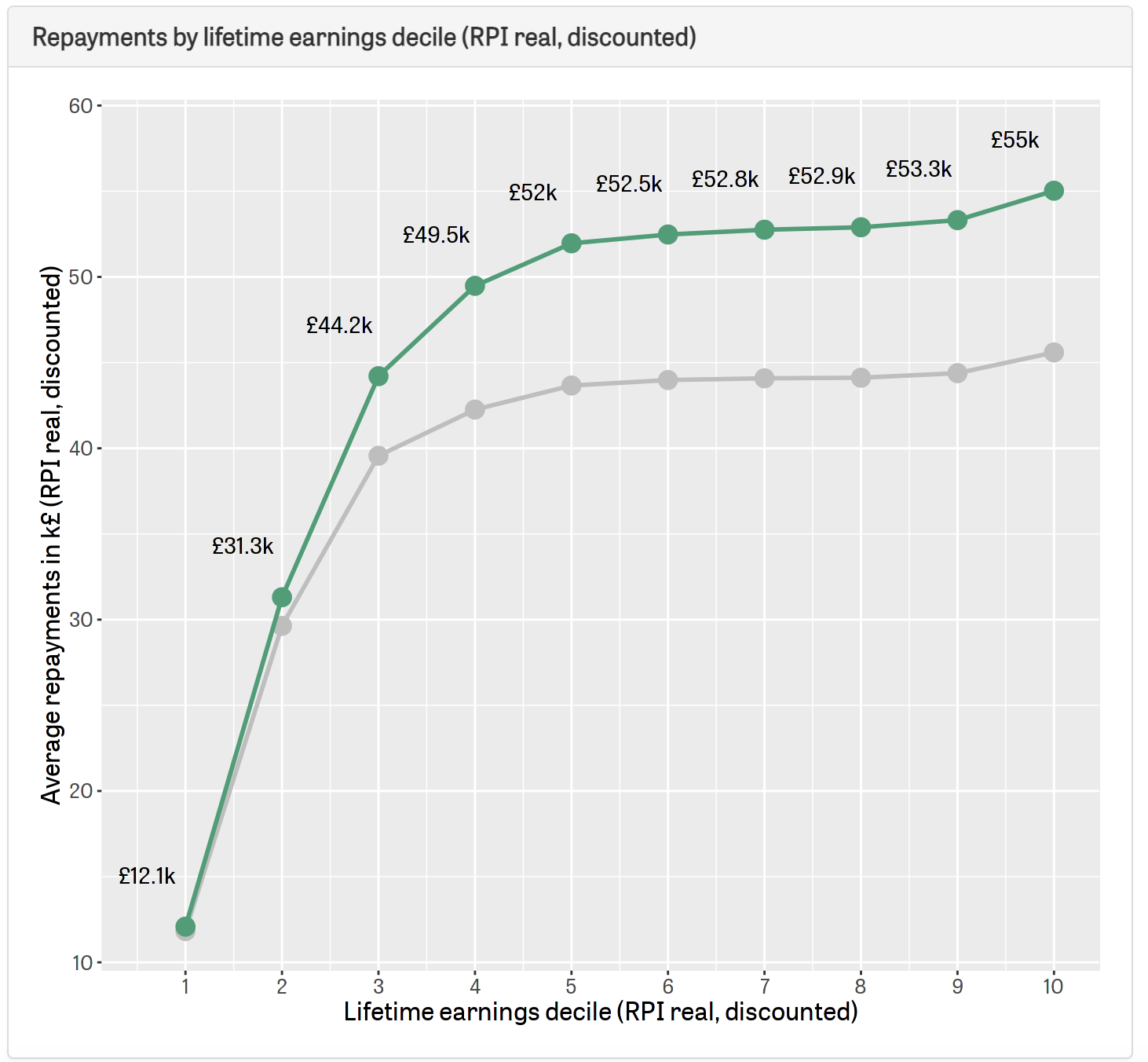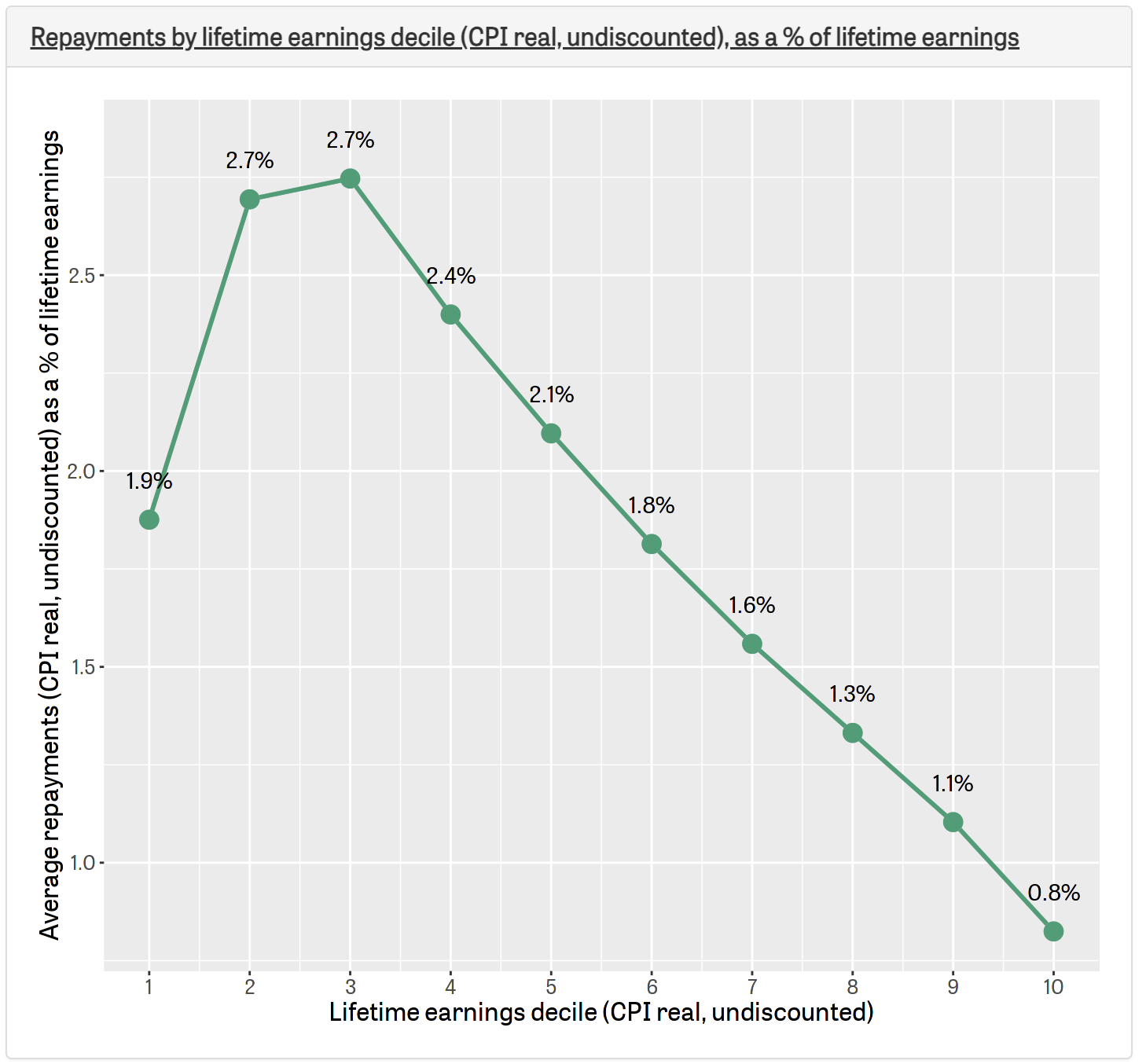What would £12,500 UG fees in England really mean?
Jim is an Associate Editor (SUs) at Wonkhe
Tags
And so BBC News have reported it as “Unis float £12,500 fees as freshers pack for term”.
The government might reasonably be thinking both about the politics of such a proposal and the actual impact on the nation’s finances.
For the former, we can turn to this bit of public polling, which has even a rise to £9,750 only marginally less unpopular than that supervised tooth brushing proposal that popped up during the campaign.

But what about the costs? There are multiple models around (partly because it’s hard to guess the value of salaries and loan repayments 40 years out), but if we play with the IFS calculator we can get a sense.
If all that happened was to put £9,750 in as the max fee, the total long-run government cost (discounted, RPI real) would shift from £3.8bn to £3.9bn. £100m is not nothing, but it feels like it ought to be at least able to be considered.
It’s “modest” because pretty much everyone would pay a bit more – here’s the lifetime impacts by lifetime earnings decile (RPI real, discounted):

The partial problem is that outlay would go from £22.8bn to £23.4bn per cohort – and a government trying to get debt down won’t like them apples.
For all of the “look at the mess they left us in” chat, one thing that Rachel Reeves couldn’t argue is that the Conservatives failed to improve long-term loan recovery rates. Plan 2 loan holders cost £5.8bn a cohort – Plan 5 is £3.8bn a cohort (long-run, discounted RPI real). Graduates pay more while students get less.
If we went for £12,500 fees, the total long-run government cost (discounted, RPI real) would go from £3.8bn to £4.6bn. Again, that doesn’t feel as big as many assume because the terms of the loan these days recover so much of what’s loaned out:

Both – or something in-between – would represent something interim while a wider review gets set up and does its more complex thing. But an interim headline fee increase is very much not the only option open to government.
Student loan interest has gone from RPI+3% for Plan 2 holders to just RPI for 2023 Plan 5 holders. That, in many ways, dealt with a politically toxic aspect of the system. But it also represented a massive bung to the rich.
So imagine for a minute that the big change that the government made was not a headline fee increase but instead moved to RPI+1.5%. Not as “usurious” as Plan 2 felt, but also not as “no real interest” as the Conservatives delivered.
The total long-run cost to government would shift in real terms from £3.8bn to £1.4bn – which in theory means there would be £2.4bn knocking about to spend on better maintenance support and direct grant funding to universities.
That’s roughly enough to give every undergrad a £500 cash grant, and to double T-funding.
The point is that if – and yes, it’s a big if – Rachel Reeves is prepared to spend more money today, perhaps on an “investment” case, there are interim fixes in the interest rates part of the system to make it all add up for the time being.
As it stands, the system we have today allows the super-rich to pay upfront, and then the richest graduates in the loan system to pay about 1% of their lifetime earnings for their HE – while those in deciles 2 and 3 pay almost 3%. Broadest shoulders and all that.



I work in a university and am very skeptical about any significant increases to fees. While VC pay is so high, Russell Group universities (and others) spend time and money opening campuses overseas (Southampton the most recent example), and significant amounts are spent on marketing and agents commissions, how can an increase be justified? Why should the taxpayer subsidise the opening of campuses in other countries?
Agree. Raising fees is political unpalatable. The current system is broken. However, on this and other issues I often feel that UUK and the sector are bad advocates as they always seem to want more money, less regulation, and rarely reflect on what they could do differently or better, so it comes across to anyone outside the HE bubble as transparent special pleading …
But universities open campuses in other countries as a mechanism for raising income without increasing student numbers at their home campus, and thereby subsidising UK costs. Agents are paid fees because they recruit international students, which generates income. Significant time is spent on marketing to attract students who pay fees, which generates income. There’s a weird disconnect in HE where people argue that money is being spent on unnecessary activities, all of which aim to raise income, in a context where it is necessary because of the market created by successive govts in HE (whether the market should exist is… Read more »